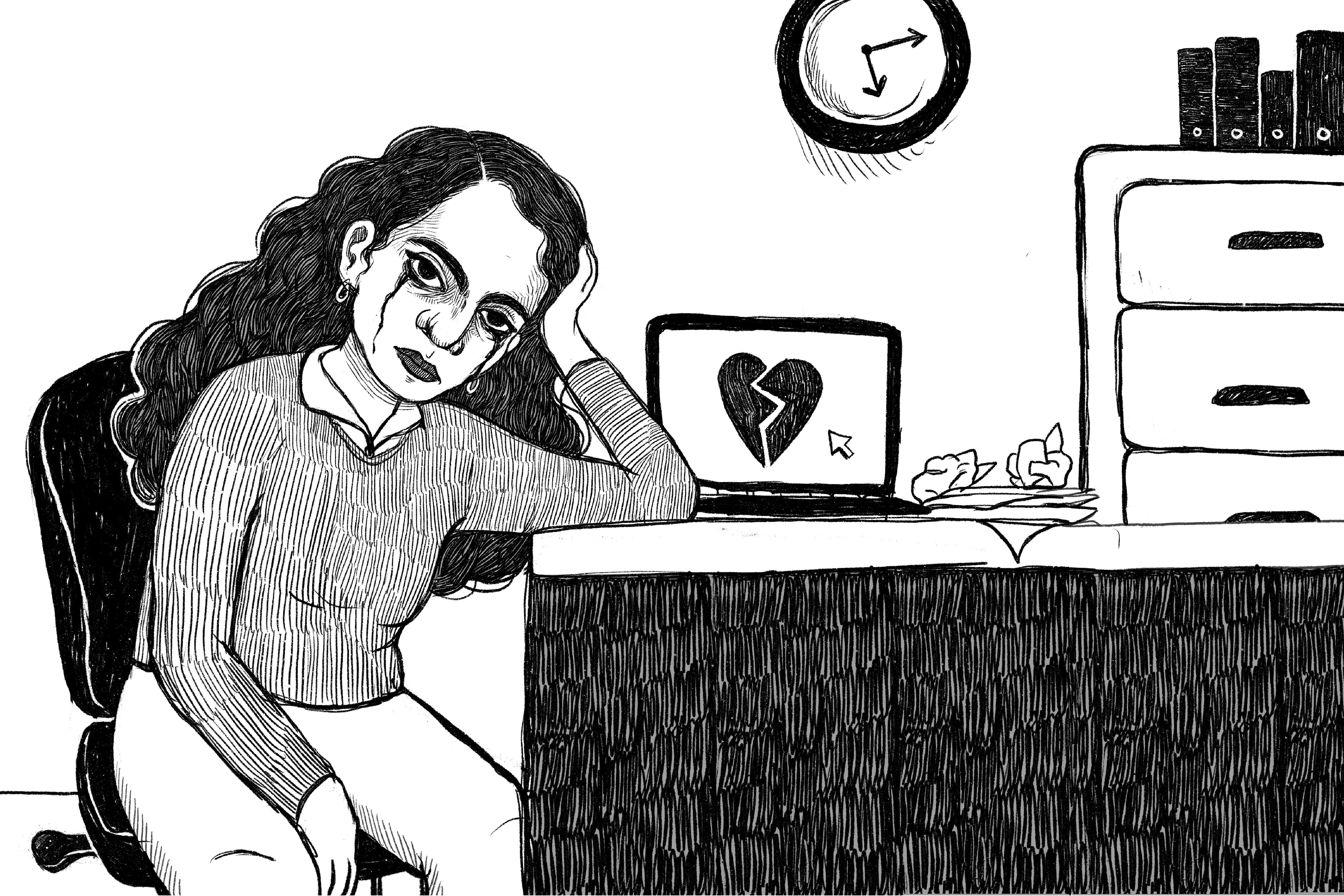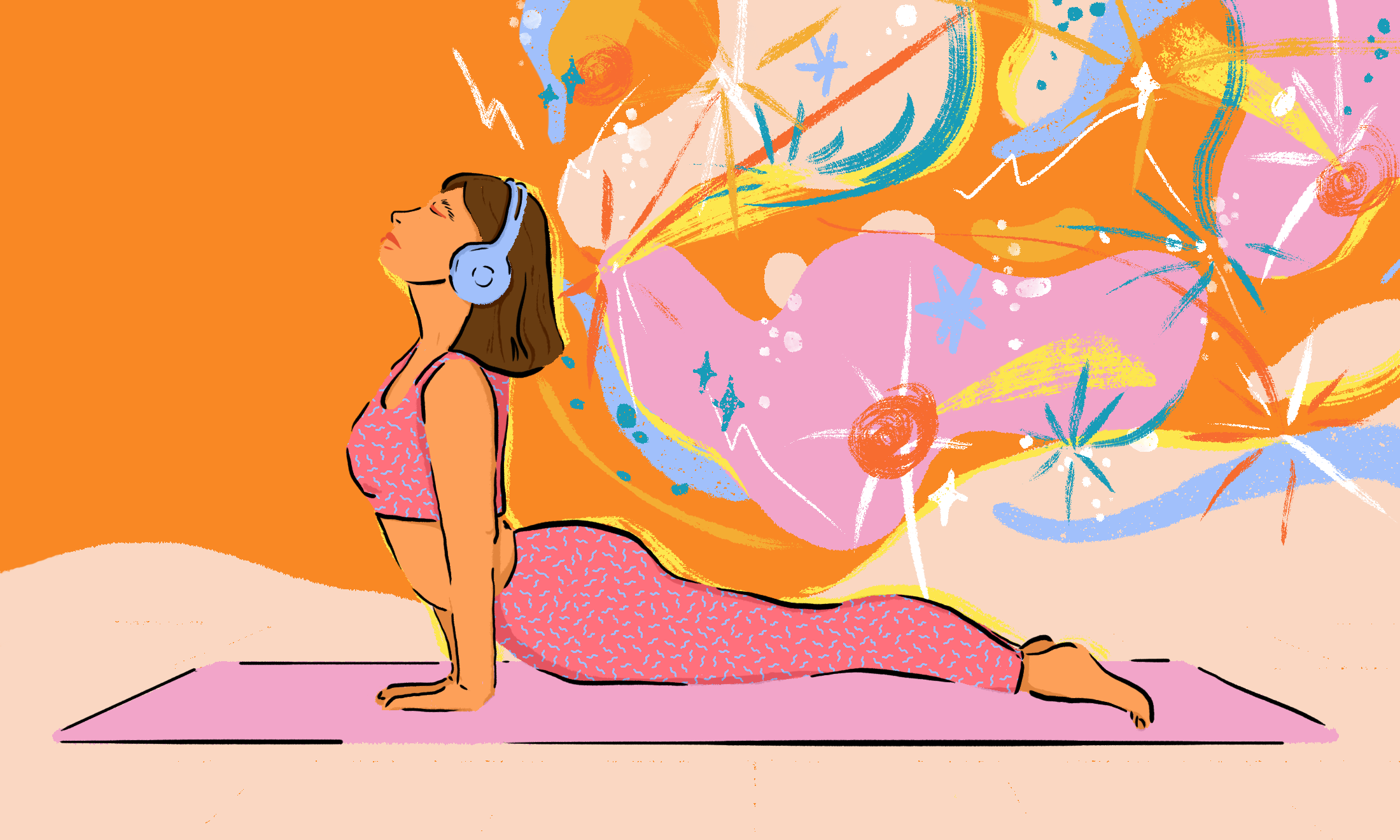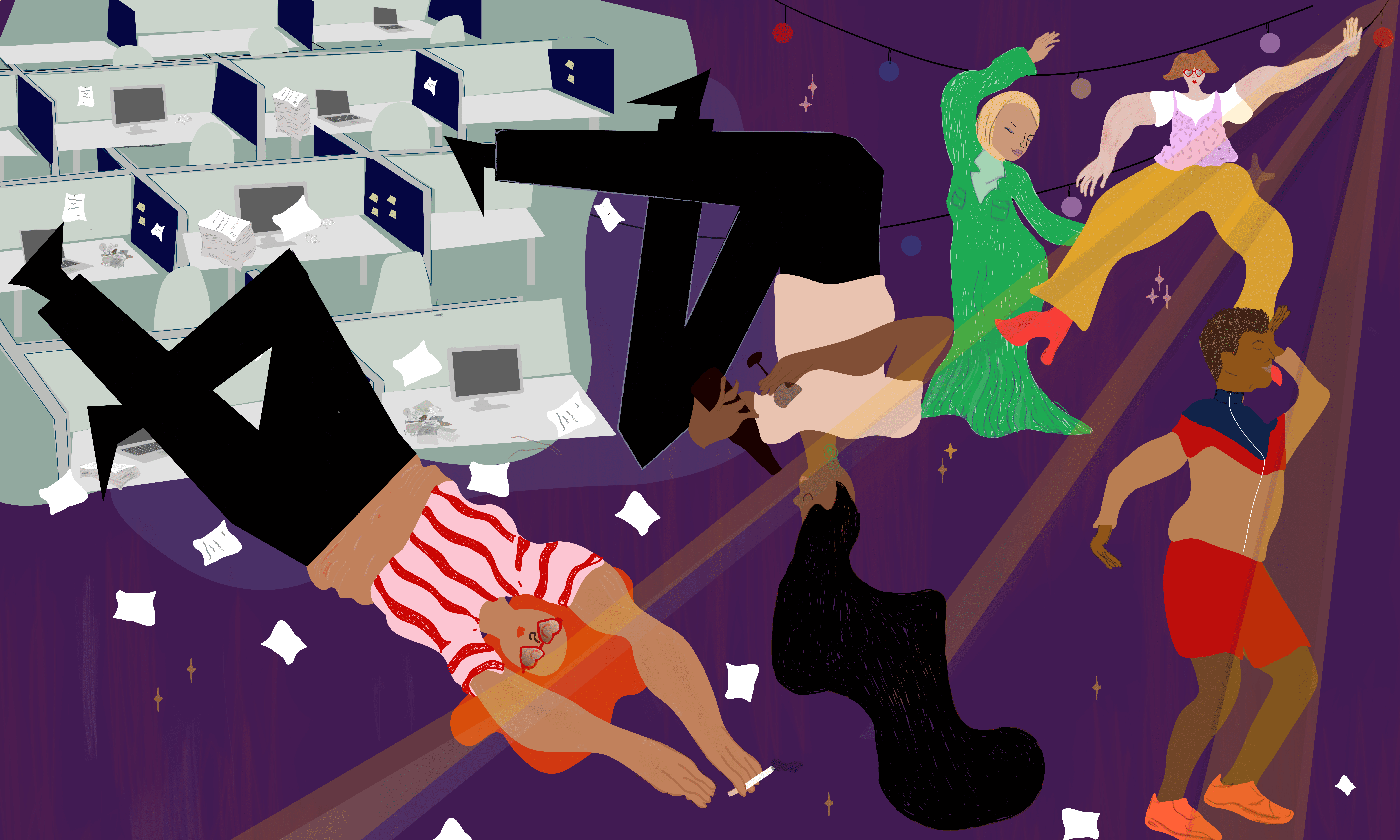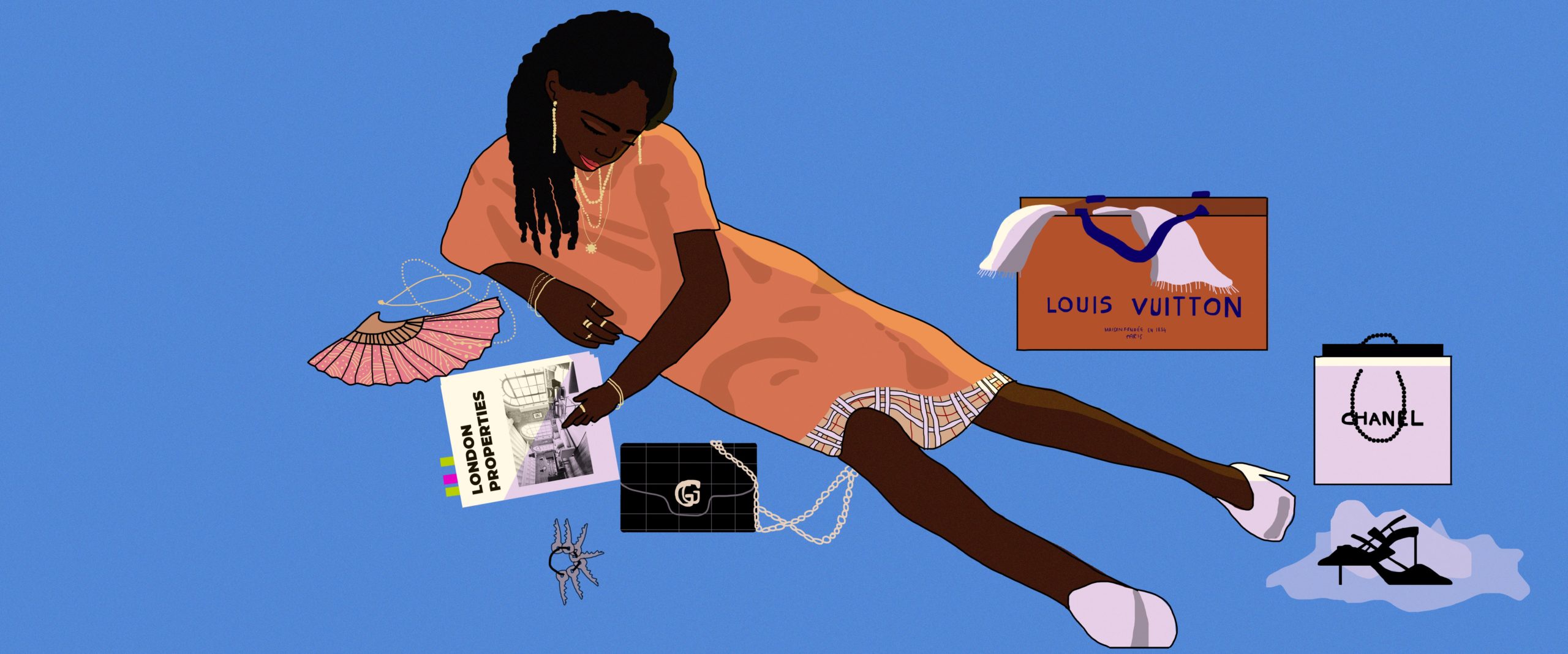
Illustration by Rama Duwaji
Healing from heartbreak is hard under capitalism
During my breakup, the last place I wanted to be was at work. But our capitalism doesn't make space for our emotional struggles.
gal-dem
12 Jan 2020
After ending the decade with yet another brutal heartbreak from yet another white man, I knew the drill regarding what I had to do to heal. Following a breakup, I value my time alone by consuming lots of sugar, crying for ten minutes at least once a day and reading teen fiction novels. During this particular separation, I came to realise that while heartbreak is sometimes inevitable, its lengthy isolating process doesn’t have to be.
We’re familiar with capitalism’s systematic obstacles: the tedious work routine, the forced superficial interactions, and the maintenance of professionalism are all elements of what Arlie HochschiId calls “emotional labour”. Smiles and service are reserved for colleagues and customers, our own happiness is secondary.
In the aftermath of the breakup, I have had two anxiety attacks at work. Luckily, my managers were supportive enough to allow me to go home but I declined, prioritising money over my mental health. I often wondered if my colleagues would remain sympathetic if they knew why I was so dejected. I felt embarrassed to tell my colleagues the justification for my lack of friendly customer service was all over…a “boy”. I’ve seen enough friends go through it to know it is not uncommon for people to take time off work for heartbreak. However, this reality is rarely disclosed between colleagues because of the capitalist expression of romantic relationship issues as trivial – something to just get over. In work environments we often censor our most important relationships to serve the capitalist notion of “professionalism”. Capitalism teaches us to compartmentalise parts of ourselves – the personal self must be non-existent to avoid being “inappropriate”, even if this means straining to withhold our suffering from colleagues.
“In work environments we censor our most important relationships to serve the capitalist notion of ‘professionalism'”
Heartbreak is different for everyone, but many of us find comfort in identifying our common experiences. Your chest tightens, your heart physically sinks or beats faster. I woke up every day for two weeks with a racing heart, which suppressed my appetite. I physically couldn’t eat anything all morning – my anxiety would usually only subside later in the day. But that was when my shift would start. So, capitalism stole a rare moment of happiness that could have been reserved for my own health. I wanted to be able to create new memories with my family and friends to counteract the painful ones from my heartbreak, reminding me love is about more than just romantic relationships. During work, I would think about cooking with my mother or playing poker with my brothers and brutally losing instead of quietly sobbing upstairs. But instead, I was at work.
To some, my predicament might seem like a false one. Capitalist society broadly rejects the study of love and heartbreak as important, despite evidence suggesting that it nourishes our growth and wellbeing. Myron Hofer’s research in the Journal of Behavioural Medicine conveys a hauntingly accurate depiction of heartbreak: “losing regulatory control of stable daily patterns, of tasks, attention, concentration, sleep, food intake and mood, such that they become fragmented, and the individual has a sense of internal disorganisation”. Medical researcher Tiffany Field stressed that the physical effects of heartbreak are “chronically painful” to the extent of “mimicking heart attacks”. In terms of mental health, heartbreak can mean an inability to regulate your mood: “the loss of a significant other means the loss of both activating and calming stimulation”. Many of us are used to performing “emotional labour” every day at work – but when our hearts are broken, we’re forced to maintain this burden while we’re physically and mentally aching inside. We don’t need evidence to know we’re hurting, and yet heartbreak would never be written down for sick leave or a PEC form.
During times of emotional turmoil, instead of focusing on the act of healing, we so often subscribe to a simplistic perception of life: one that states that work is always more important than love. We become trapped in repetitive work routines that lead us to believe we have stagnated permanently. We conflate the alienation derived from capitalism with the feelings of unworthiness that follow a breakup. This sense of worthlessness, in turn, impedes our growth regarding our sense of self. Growth is often an outcome of heartbreak, but work can hugely stifle this.
I’ve been told the best way to deal with heartbreak is to immerse yourself in work, distract yourself, and regain your self-worth through production. The problem with this way of healing is, once you have finished your contracted hours, go to bed and close your eyes, you might find your heart fluttering, and agonising thoughts racing through your mind. For many people, healing may be expressed through distractions, or their passion from working may be what causes their joy. But for some people taking a break is also necessary, especially with pain felt during the beginning of heartbreak. There may be days where you feel like your body is not allowing you to work, in the same way broken fingers need to heal before picking up a pen – sometimes our minds and hearts need to heal before going back to work.
“bell hooks emphasises love and healing as priority before any other aspect of life”
I am a sucker for hope, as I am for love, and believe that capitalism should not destroy our right to bask in the sadness of heartbreak. In the late Erik Olin Wright’s last book, he focuses on the idea of a “flourishing life” being more than just physical health but a life where people are not held back from periods of intense healing. My first heartbreak disrupted my life by limiting my university options. I didn’t focus on healing and my anxiety prevented me from thinking straight in my exams. I was overcome with grief and my school counsellor told me the best way to move forward was through intense revision. So many hours were spent revising and nothing stuck.
As a working-class Bengali girl, I view heartbreak as a privilege to endure healthily. I’ve spoken to friends who have had their mothers comfort them to bed over their heartbreak, but I couldn’t even tell mine. The suppression of heartbreak at home is still excruciating, but it doesn’t have to be at work or university. bell hooks emphasises love and healing as priority before any other aspect of life. If healing were a worker’s right, we could stimulate healthy mental wellbeing for young women of colour who are hiding the same pain. We need to normalise and accept the severity of heartbreak which should be accommodated for in workplaces and schools, and we need to hold capitalism accountable for preventing healing.









